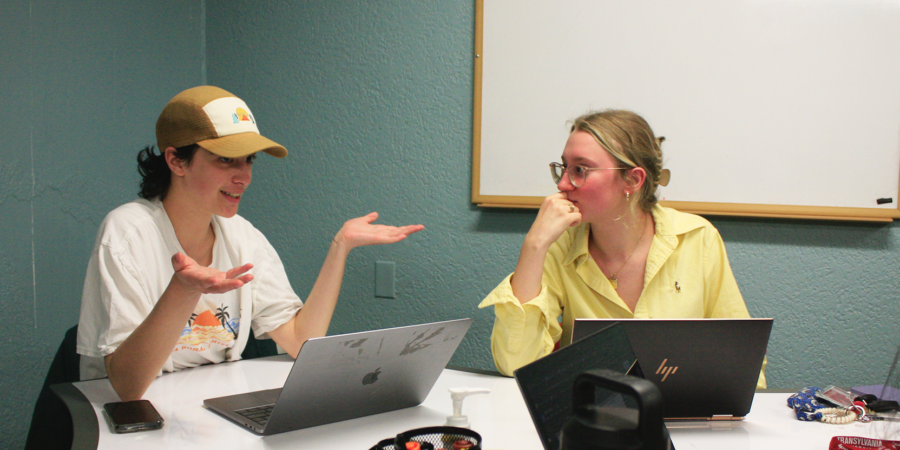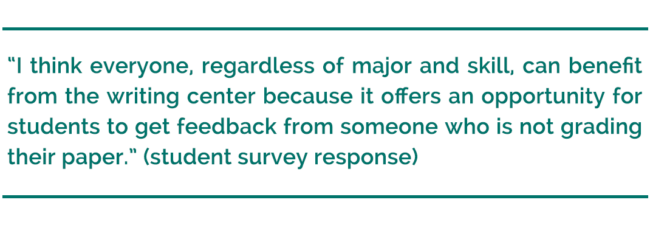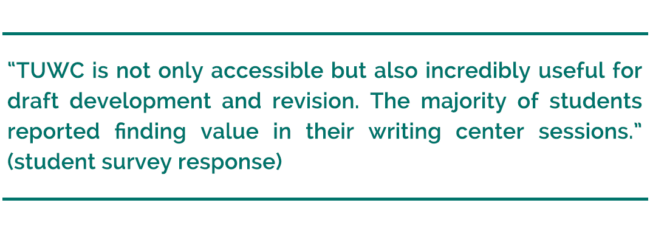By Eve Brunell, Estella Davis, Jay Fowler, Caroline Host, Dylan Howell, Emily Jackson, Olivia Jackson, Evan Paden, Olivia Sparks, Ellie Thornsbury, Erika Williams (under the direction of Dr. Scott Whiddon, Transylvania University)
In Fall 2023, Transylvania University Writing Center (TUWC) partnered with four undergraduate courses—theater, philosophy, sociology, and writing/rhetoric/communication—to support writers working within a range of genres and assignment types. In each of these partnerships, enrolled students were required to work with a TUWC undergraduate peer writing consultant at least two times to support understanding prompts, brainstorming possible pathways, developing drafts, and considering revision strategies. To facilitate such required visits, participating faculty members worked with the TUWC director to develop assignment prompts. They then attended a TUWC staff meeting to help peer writing consultants have a better sense of each assignment’s rhetorical dimensions, including genre, purpose, audience, and potential pitfalls.
Given the amount of labor put toward this project, and to get a better sense of whether TUWC should continue such course partnerships (in light of our other initiatives), students in all four sections were surveyed at the end of the semester to investigate the type of work carried out in required sessions. The survey also polled the probability of whether or not students would self-initiate such sessions without a required class component.
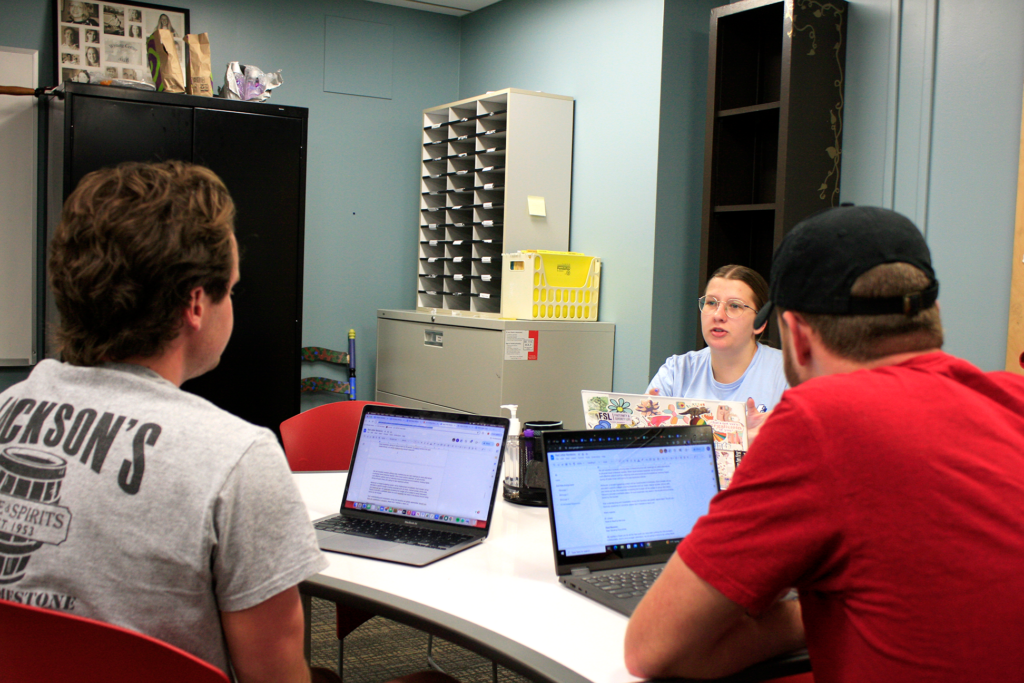
As a writing group, we spent Winter 2024 meeting weekly, analyzing survey results and exploring the literature surrounding required writing center visits; this work led to collaborative drafting and revision.
Throughout our collaborative work, we also examined different studies that concerned required writing center visits. Pleasant’s study proved that students who were required to visit consistently outperformed their counterparts in their writing assignments. Such findings are echoed by Regaignon and Bromley, who found that “student writers improve more markedly over the course of a semester with required rounds of revision” (52). Wells, in her study, surveyed students and found that, after being required to visit the writing center, “mean scores were also positive for questions about students’ overall satisfaction and likelihood to return to and recommend the writing center” (7). Our study reaffirms and extends ideas offered by Pleasant, Regaignon and Bromley, Wells, and others in the field who argue that required visits, when well-designed and connected to course aims, lead to the possibility of future self-motivated peer collaborations in sanctioned student support spaces—demystifying writing center practices for students.
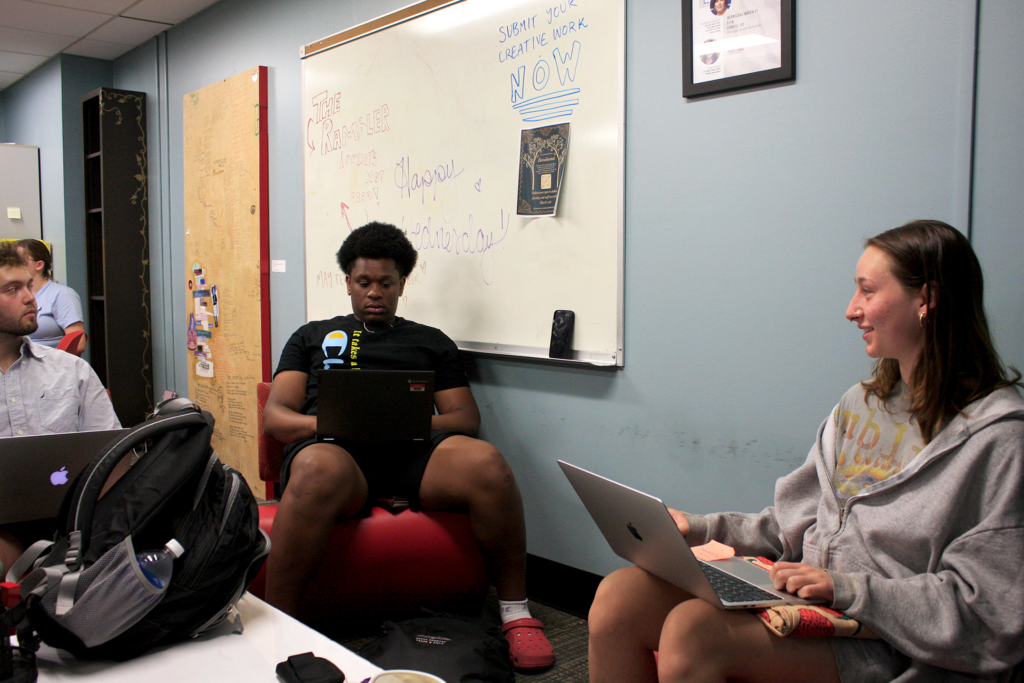
Many of the questions from our survey—taken during class time by 73 total students in these four participating sections—speak to the ways that TUWC is not only accessible but also incredibly useful for draft development and revision. The majority of students reported finding value in their writing center sessions, with 49.3% communicating that these required sessions were extremely helpful for developing written work and 42.3% communicating that it was somewhat helpful. A majority of survey respondents went on to claim that they would be interested in visiting the center again and would recommend the experience to others. 78.3% of students said they would be interested in working with a Writing Center staffer again, while 88.7% of students said they would recommend the Writing Center to their peers.
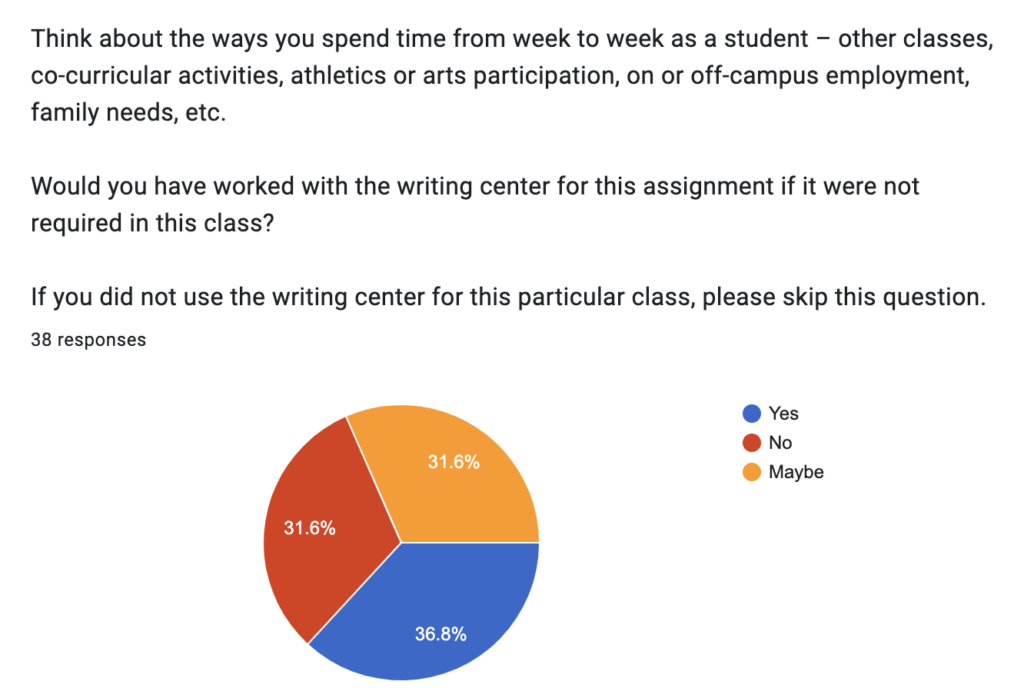
90.1% of students reported that they found it easy to schedule sessions with staffers, allowing participating students to access a variety of supports. When asked about what they did during their time with staffers, the top three responses (out of the thirteen options for students to select) involved higher-order concerns: “Discussed a writing assignment for this class (90.1%),” “Brainstorm possible options for drafting (84.5%),” and “Reviewed drafts or partial drafts in process (62%).” Scholars such as Regaignon and Bromley explain the importance of higher-order concerns because they help students gain awareness of their writing process.
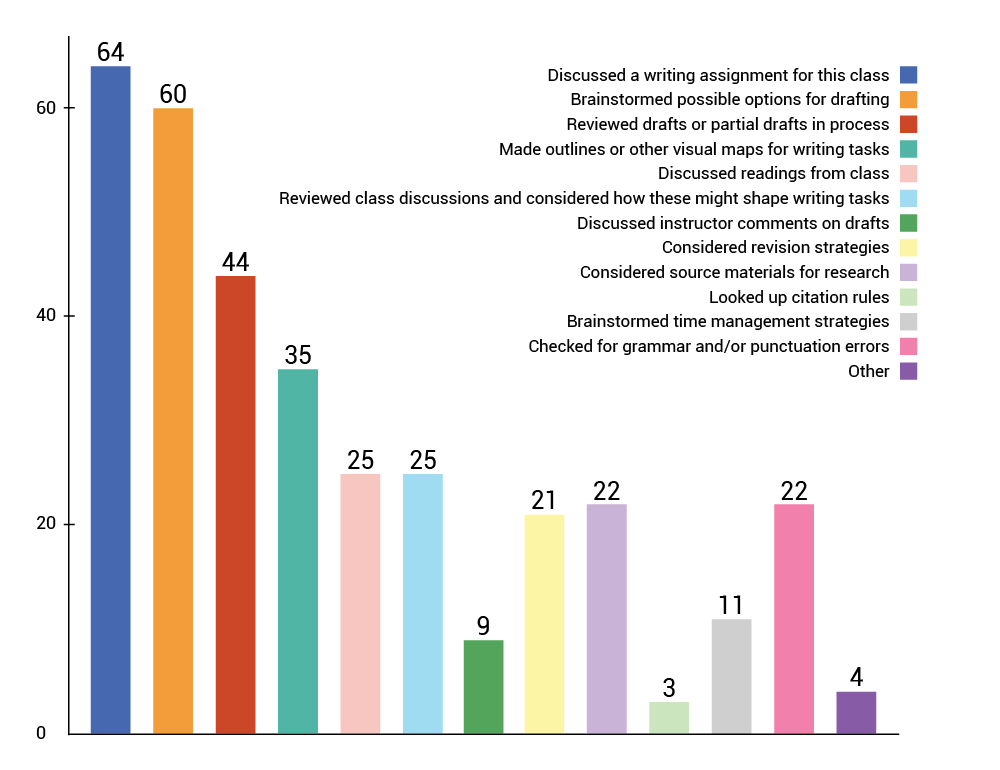
Despite such positive responses, our survey also uncovered some challenges when it comes to writing center support at this particular moment. One question asked, “Think about the ways you spend time from week to week as a student—other classes, co-curricular activities, athletics or arts participation, on or off-campus employment, family needs, etc. Would you have worked with the writing center for this assignment if it were not required in this class?” The responses to this question were nearly perfectly split into a triad: 34.8% of respondents answered no, 34.8% answered maybe, and 30.4% answered yes.
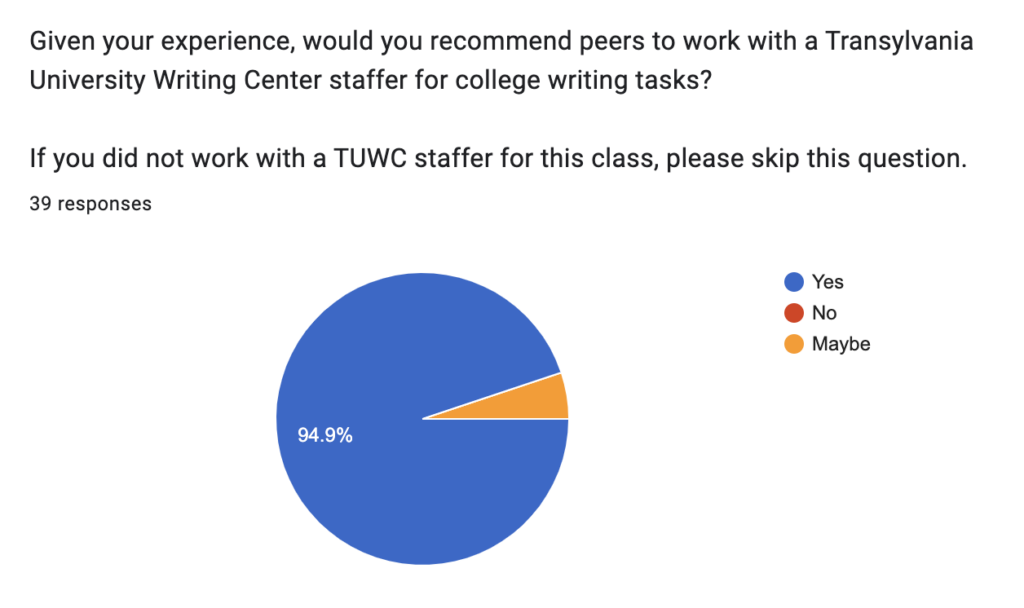
Although TUWC works hard to brand our services to students—through class visits, attendance at campus events, promotion via faculty, and more—and despite a deep understanding of value, students might see all kinds of reasons not to seek TUWC support. Wells supports a similar sentiment, stating, “Interview findings suggest that required tutoring can feel burdensome when students feel they are squandering their limited time on help that they do not need” (101). Multiple students in our survey indicated that time was a deciding factor in their engagement with TUWC. One student noted the difficulty of coordinating appointments with their other activities, stating, “I play a sport that takes up an average [of] 15-20 hours a week, plus I have a job that I work for another 8 hours…I do recognize that the TUWC has extended hours that would help in this situation. It’s more that I’m too tired to do a session.” Another student reiterated a scarcity of time in addition to the need for professor endorsement, noting “I would probably need for [the] teacher to remind and recommend the center. . . I’m so busy and would probably forget.” Like others in our data set, both responses indicate a greater trend—a deficit of expendable time and extrinsic motivators.
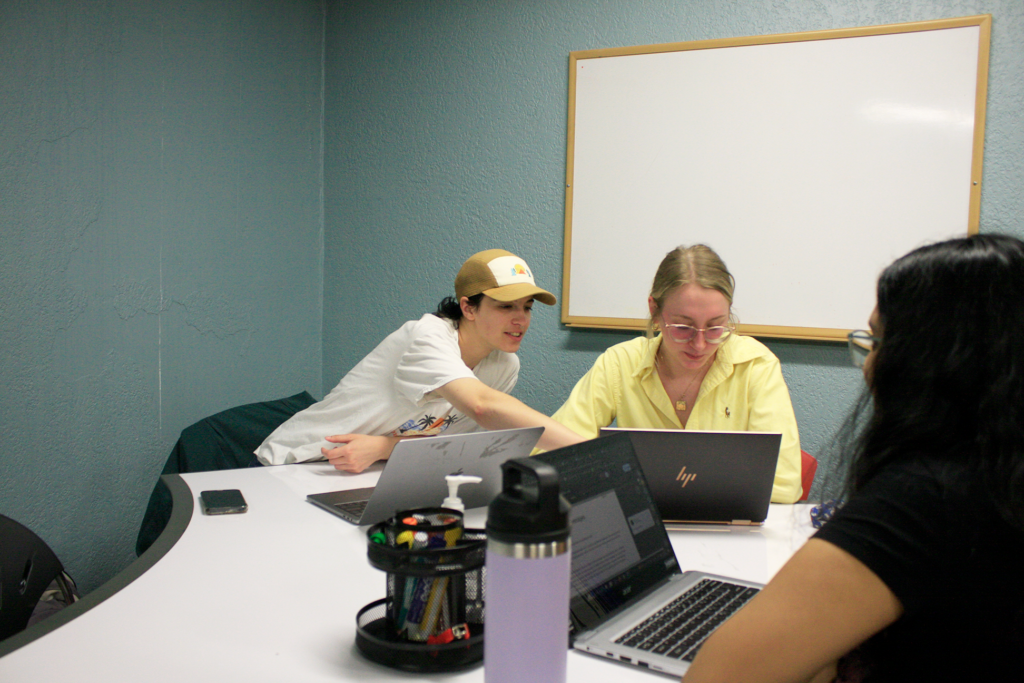

Our data set demonstrates how required visits (i.e., classroom/writing center collaborations) can be a catalyst for inspiring future visits, benefiting college writers, and providing a healthy view of the writing process. Included below is a sample of student survey responses on the impact of writing center appointments:
- “I had never used it before this class and did not know how beneficial it would be.”
- “I used my writing center appointment as more of a brainstorming discussion rather than a
- revision of my progress . . . just having someone to talk these things through with is very helpful.”
- “I went in a little lost on what I was going to write and then I walked out with a clear vision and
- outline.”
- “They were very insightful and helpful when at the final stages of my paper.”
- “I think everyone, regardless of major and skill, can benefit from the writing center because it
- offers an opportunity for students to get feedback from someone who is not grading their paper.”
- “I have already recommended the writing center and different staffers to peers and will continue
- to do it. Even if you just need someone to check grammar, it’s a great resource, and it’s free. If
- anything, you’ll learn something from them, and that’s great.”
- “I think everyone, regardless of major and skill, can benefit from the writing center.”
- “Being required to go for the first time freshman year made me realize how helpful it can really
- be. After that, I would make appointments on my own. I think initially students just need a nudge
- in the right direction.”
These and other responses reify ideas Wells argues in her article, given that several students responded that they were unaware of the Writing Center prior to this requirement and found their time with peer consultants worthwhile.
Writing centers face a plethora of issues regarding motivation, as “grind culture” and student life often make it difficult to schedule writing center appointments. However, required appointments—when designed in collaboration with faculty—can be beneficial and motivational for students.
Such partnerships help students engage with the writing center at various parts of their own writing process.
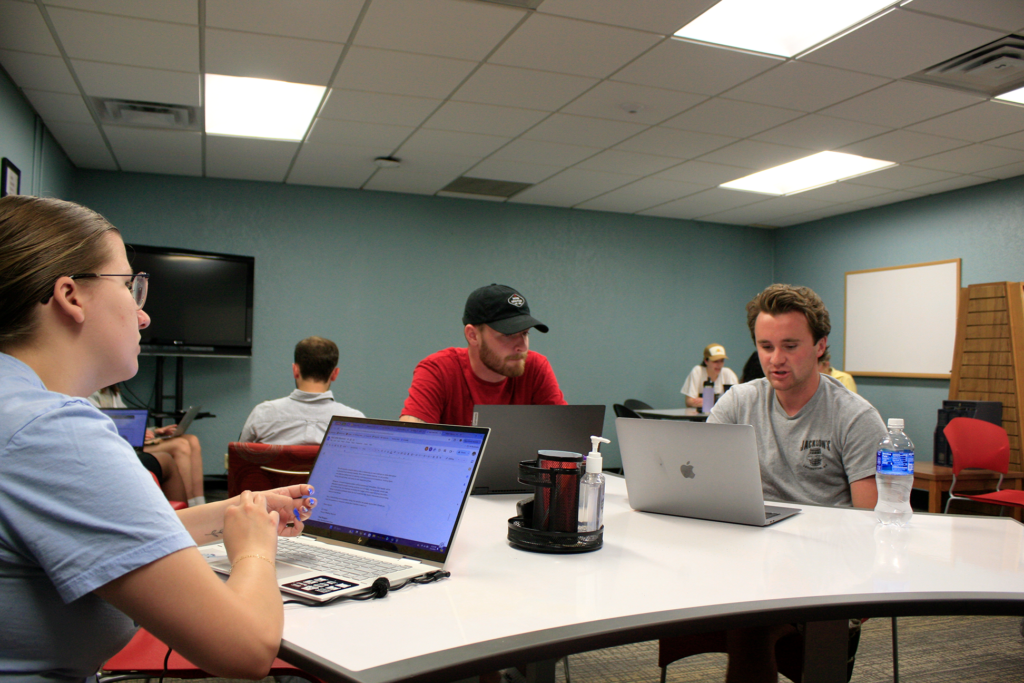
References
Pleasant, Scott. “Required Appointments: The Debate and the Data.” Southern Discourse in the Center, vol. 19, no. 2, 2015, pp. 10–26.
Regaignon, Dara Rossman, and Pamela Bromley. “What Difference Do Writing Fellows Programs Make?” The WAC Journal, vol. 22, no. 1, 2011, pp. 41–63.
Wells, Jaclyn. “Why We Resist ‘Leading the Horse’: Required Tutoring, Rad Research, and Our Writing Center Ideals.” Writing Center Journal, vol. 35, no. 2, 1 Jan. 2016, pp. 87–114.

Eve Brunell is from Kingsville, Ohio and is studying Writing, Rhetoric and Communication and Digital Arts and Media at Transylvania University. She is a member of the cross country and track and field teams. Besides running, she also enjoys creating art, going on walks, and hanging out with friends.
Estella Davis (she/her) is studying English and Creative Writing at Transylvania University. She is originally from Lexington, Kentucky. She is the Editor-in-Chief of The Transylvanian, the oldest student-run literary magazine west of Appalachia. She also works in the Writing Center. When not on campus, she can be found cozied up with her short-haired gray tabby and a book. Her creative writing can be found in Nowhere Girl Collective.
Jay Fowler plans on majoring in Political Science at Transylvania University. He is originally from Sanibel, Florida, but has enjoyed making Kentucky his new home. He enjoys being Involved in Greek life and looks forward to serving as a Writing Center staffer in the fall.
Dylan Howell is a Transylvanian student pursuing an English major from Prestonsburg, Ky. He serves as a Transylvania Writing Center Staffer, editor of The Transylvanian literary magazine, and Transylvania Writer’s Circle member. In his spare time, he spends time with friends, reading, translating Ancient Greek, and writing via typewriter.
Caroline Host is a Transylvania University student raised in Lexington, Kentucky. She is studying Writing, Rhetoric and Communications. When on campus, she also works as a writing and history tutor, a photographer for the student newspaper, along with serving on the residence life team. In her own time, she loves watching movies, then writing, reading, or drawing—preferably in nature.
Emily Jackson is a sophomore Writing, Rhetoric, and Communications major with minors in Political Science and Spanish. She works as an Admissions Ambassador and Transylvania Writing Center staffer. She enjoys being in nature and crafting.
Olivia Jackson is a Transylvania University Writing, Rhetoric, and Communications major from Danville, KY. She is a member of the Student Newspaper, the Rambler, and works in the Writing Center. She also enjoys writing and reading poetry.
Evan Paden is a freshman at Transylvania University, majoring in Spanish and Writing, Rhetoric and Communication. She is a writing center staffer at Transylvania, as well as a Spanish tutor! Outside of school, she enjoys cooking, staying active, and traveling.
Olivia Sparks is a student at Transylvania University from Lexington, KY. She is pursuing a degree in International Affairs with a minor in Spanish. She is also an athlete on the Track and Field team and will be working as an Admissions Ambassador this fall.
Ellie Thornsbury, a Louisville native, is a multifaceted sophomore at Transylvania University. Pursuing dual degrees in Digital Arts and Media and Writing, Rhetoric, and Communication, she excels as an Admissions Ambassador, Writing Center Tutor, and student athlete on the Cross-Country and Track teams. With a passion for storytelling through visuals and words, Ellie finds inspiration in nature and literature.
Erika Williams is an English major with a Creative Writing minor at Transylvania University. Hailing from Tehachapi, CA, she serves on the editorial board of The Transylvanian Literary Magazine, as the founder of the Transy Writers’ Circle, and as a Transylvania University Writing Center staffer. Her non-literary hobbies include spending time with friends, watching movies, and riding her Thoroughbred horse, Troy.

